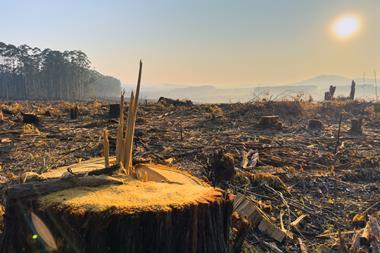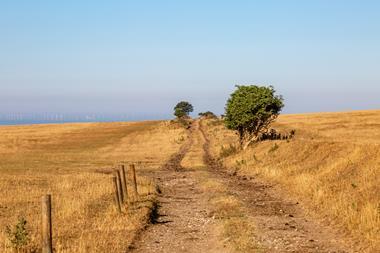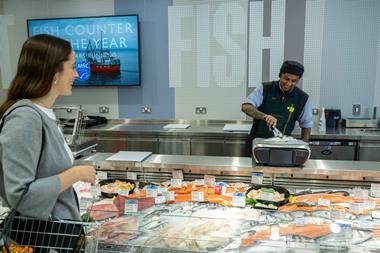
Retailers should be doing more to influence sustainable consumer choices as part of their journeys to net zero.
This was the message delivered by David Halpern, president emeritus of the Behavioural Insights Team (formerly the government’s nudge unit) to a room full of retailers and industry experts at the close of the BRC’s Climate Action Week last Thursday.
This year’s event explored the critical role of influencing consumer behaviour in achieving net zero, highlighting that success will depend on retailers engaging the public in the individual actions required to get there. As much as 53% of the emissions reductions needed will depend on consumers making bolder lifestyle choices and changing their behaviours – such as installing heat pumps, buying electric vehicles and changing their diet, rather than lower-impact behaviours such as recycling and cutting down on waste.
But, as we already know, there is still a significant ‘say-do’ gap between the more sustainable choices consumers claim they want to make, and what they actually do. Research shows that 88% of consumers want to make greener choices in principle, but are stopped by cost, convenience and limited knowledge.
Making an impact
We heard that the core reason behind the disconnect between consumer intention and action is that consumers do not appreciate which actions are most influential, often overestimating the climate impact of smaller actions, while overlooking those that make the biggest impact (such as flying less, eating less meat or adopting low-carbon tech).
Customer confusion comes down to unclear and inaccessible information on climate. The myriad labels, claims and certifications on products causes a dilution effect on customers’ judgements, while greenwashing is incredibly misleading. Market ‘shrouding’, where critical information on climate impacts is either missing, hard to access, or hard to compare, means consumers are unable to tell the difference between ‘good’ and ‘bad’ companies and products.
Despite this, a clear message was delivered. Retailers can and should be taking more action to influence sustainable consumer choices. And there are powerful interventions that are proven to have a big impact on customer behaviour.
As an industry we’ve already witnessed the effectiveness of interventions into choice architecture – such as the plastic bag charge – that change the choice consumers face in stores, nudging them into making greener choices. More fundamental interventions that remove the decision-making entirely, such as product reformulation, can be even more effective.
Combatting confusion
Government of course has a huge role to play in co-ordinating such large-scale consumer behaviour change – clear signalling is needed to de-shroud the market and help individuals tell the difference between good and bad companies, products and choices.
But retailers have a role to play in combatting confusion, greenwashing, and shrouding by providing clear and accessible information to help consumers confidently make better decisions in reducing the carbon emissions associated with the products they buy.
The BRC’s Climate Action Week aims to share achievements, accelerate progress, and engage retail leaders on the road to net zero. This year, we celebrated five years of the BRC Climate Action Roadmap, our industry ambition to reach net zero by 2040. We checked in on UK retail’s progress to date and the interventions required from businesses, industry, and policy-makers to get us there.
As part of the roadmap, we will continue to help retailers support their customers to adopt low-carbon lifestyles, motivated by the clear call to action.
In his closing speech, David told us something we all know: we need to make the better choice the easy one, by doing the work behind the scenes to decarbonise our products, supply chains, and operations. It might not be easy to help customers work with us to reach net zero, but it is possible.
Andrew Opie, director of food & sustainability, BRC



















No comments yet